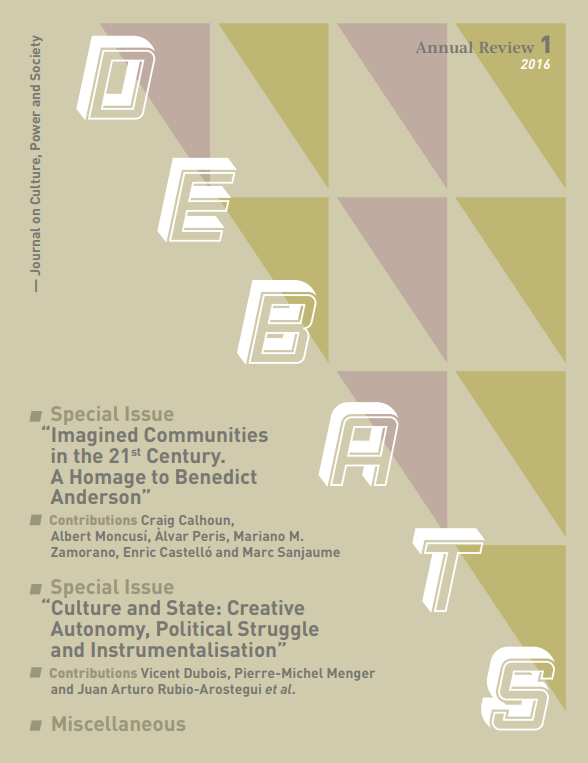Imagining the Nation through Television Fiction: Memory, Proximity and Daily Life
Resumen
This paper reflects on the importance of television (especially TV fiction)
in the imaginary of Nations. With this end in view, we first look at the role
played by television as an instrument of socialization, as well as its ability
to consolidate and naturalise an imaginary based on the dissemination
of various ideological representations of reality. Second, we explore the
ritual function of television and its incarnation in daily life, routines, and
the family setting of the broad masses. It is a dimension that studies
on the nation and nationalism are increasingly taking into account as
central factors in the process of national construction — especially
regarding the fostering of a sense of belonging and in imagining an
abstract community. Last but not least, we focus on television fiction
because it makes up the lion’s share of the programmes in most TV
stations and is probably the most relevant narrative we can find in
contemporary societies. Among the various discursive strategies
shaping this definition of the nation, we examine the construction of
the story of the nation’s past and present (in which the stories are set
within nationally-defined regions and spheres) and the tactical resort
to cultural and linguistic proximity
Descargas
Descargas
Publicado
Cómo citar
Número
Sección
Licencia
Sin perjuicio de lo dispuesto en el artículo 52 de la Ley 22/1987 de 11 de noviembre de Propiedad Intelectual, BOE del 17 de noviembre de 1987, y conforme al mismo, los autores o autoras ceden a título gratuito sus derechos de edición, publicación, distribución y venta sobre el artículo, para que sea publicado en Debats. Revista de cultura, poder y sociedad.
Debats. Revista de cultura, poder y sociedad se publica bajo el sistema de licencias Creative Commons según la modalidad «Reconocimiento - NoComercial (by-nc): Se permite la generación de obras derivadas siempre que no se haga un uso comercial. Tampoco se puede utilizar la obra original con finalidades comerciales».
Así, cuando el autor o autora envía su colaboración, acepta explícitamente esta cesión de derechos de edición y de publicación. Igualmente autoriza a Debats. Revista de cultura, poder y sociedad, la inclusión de su trabajo en un fascículo de la revista para que se pueda distribuir y vender.











